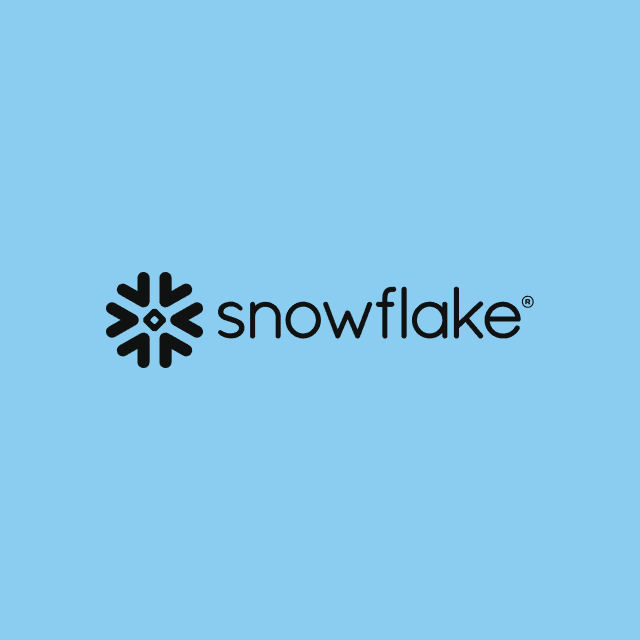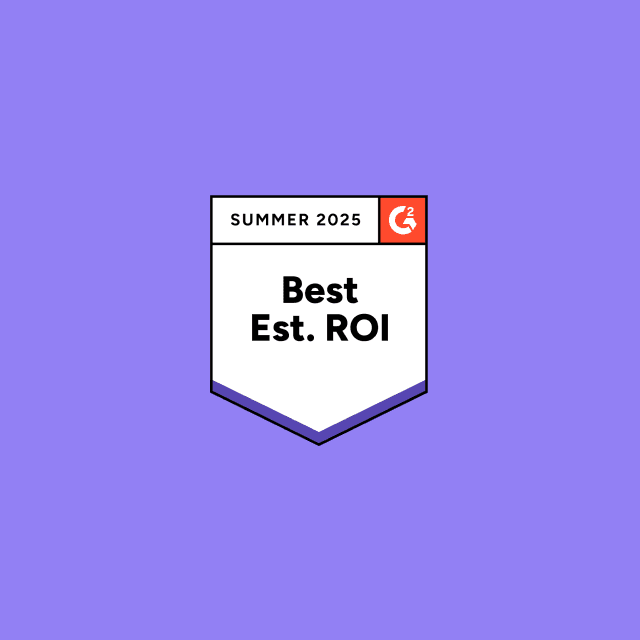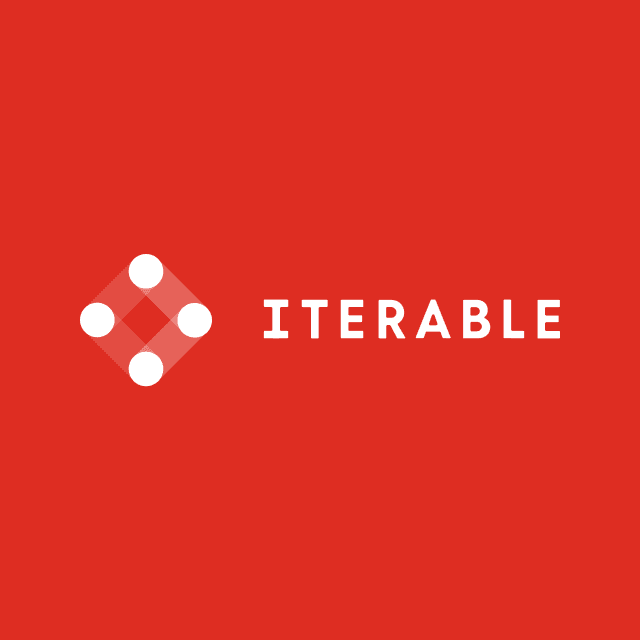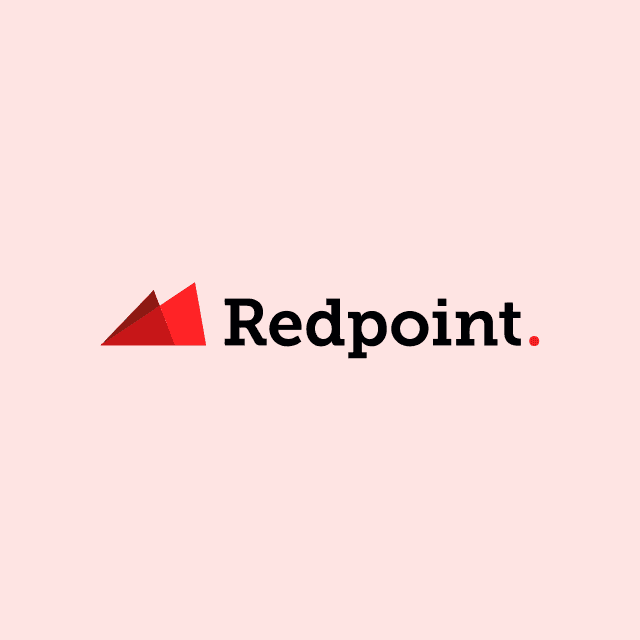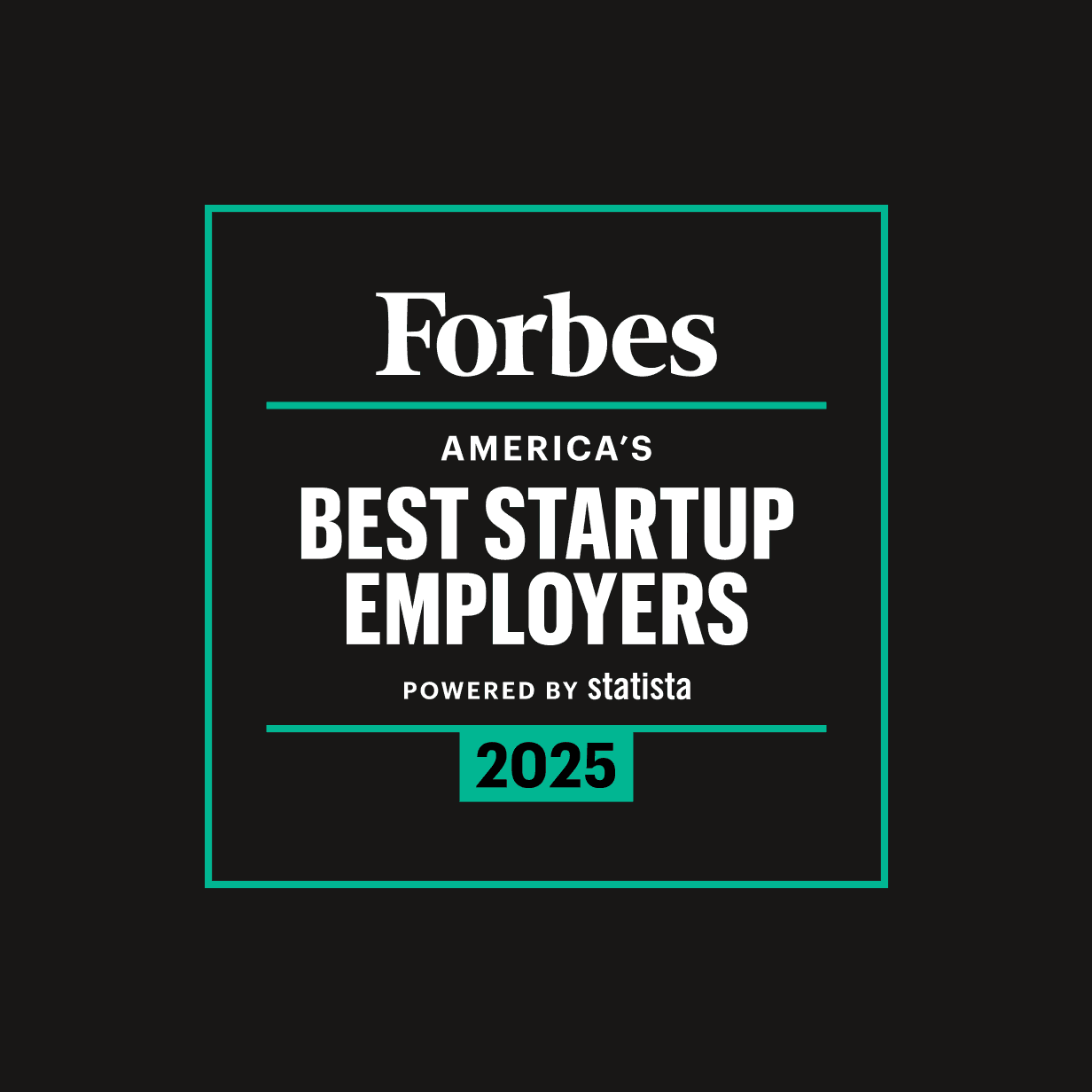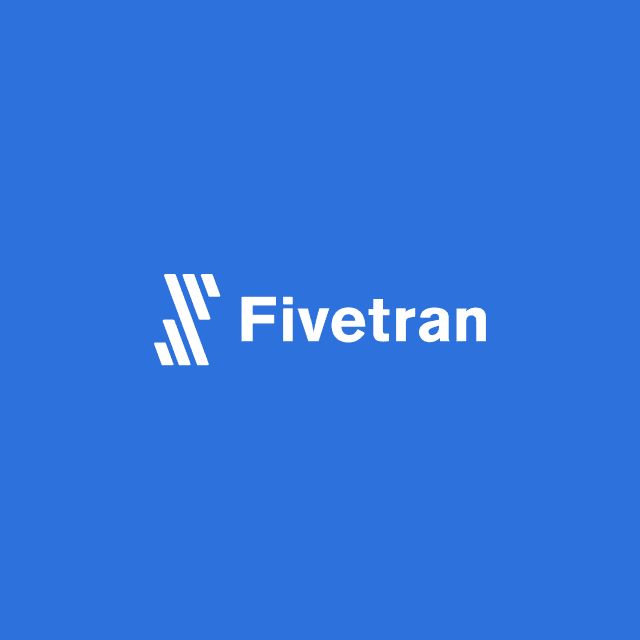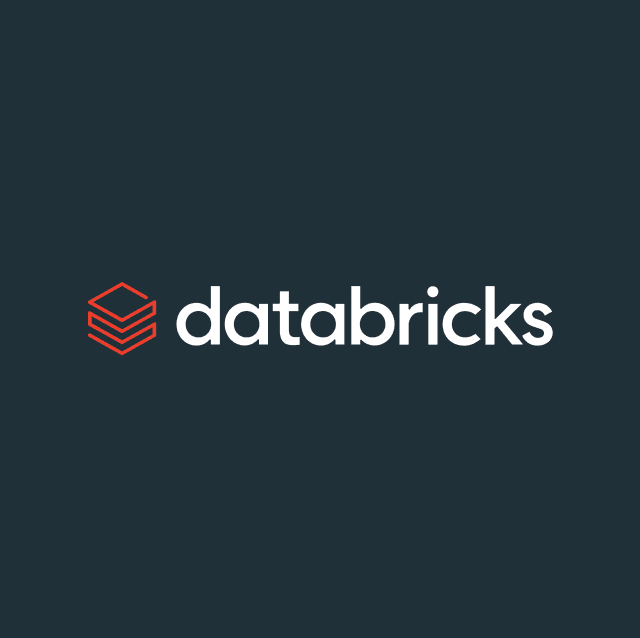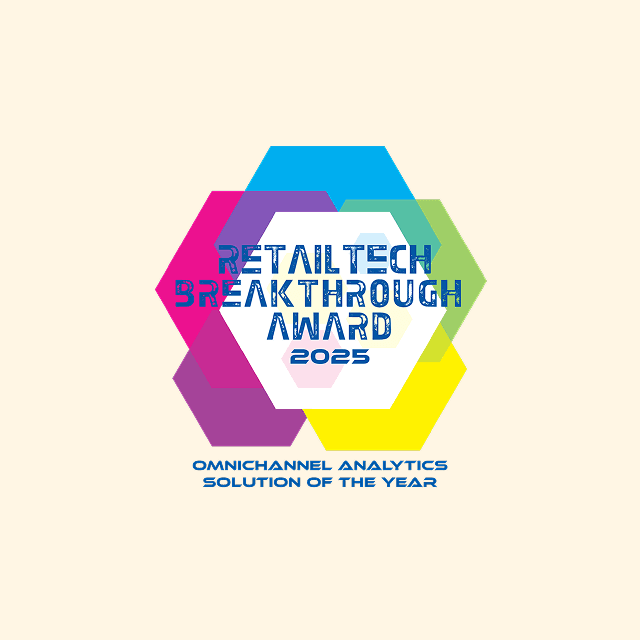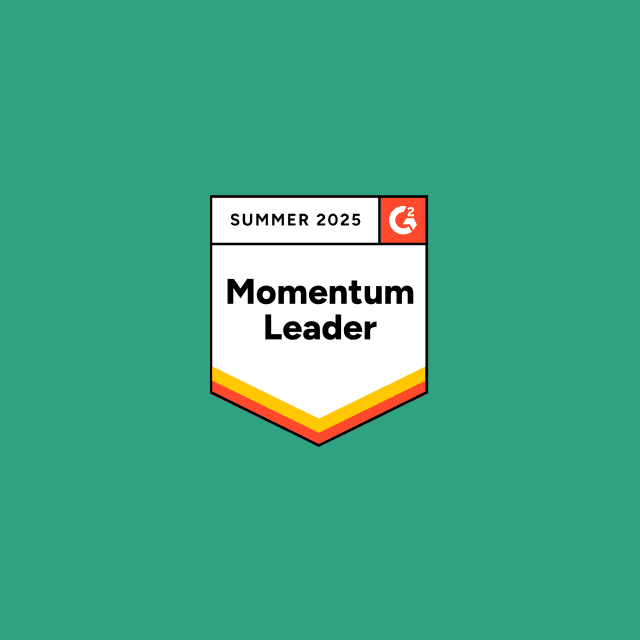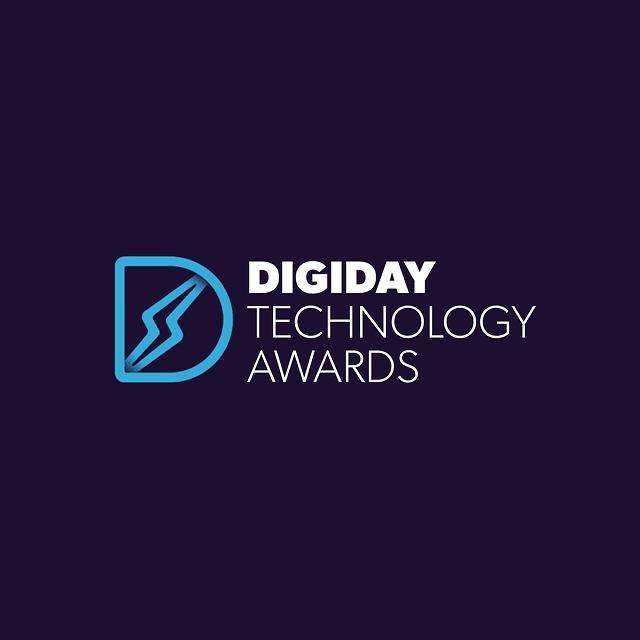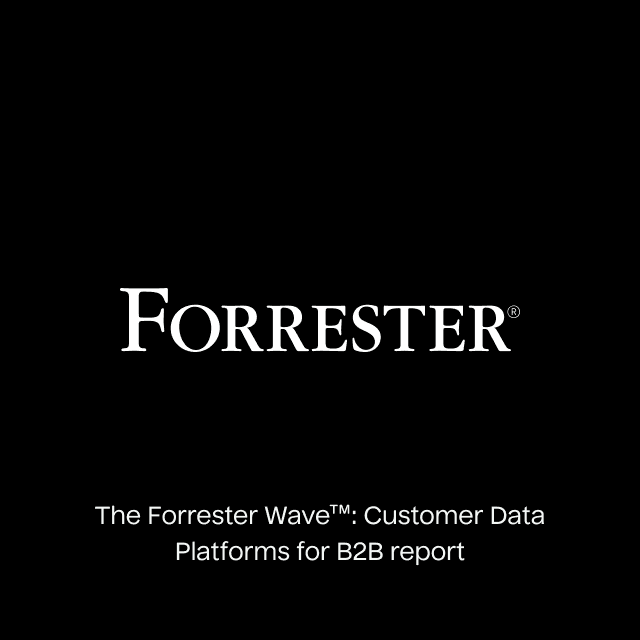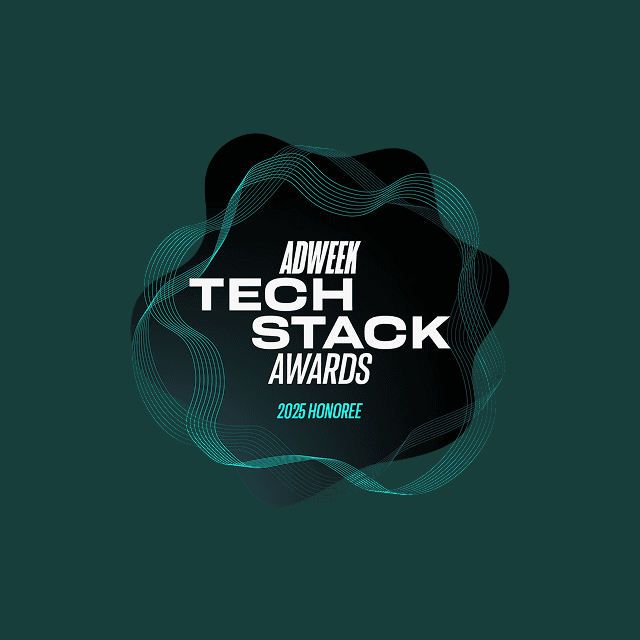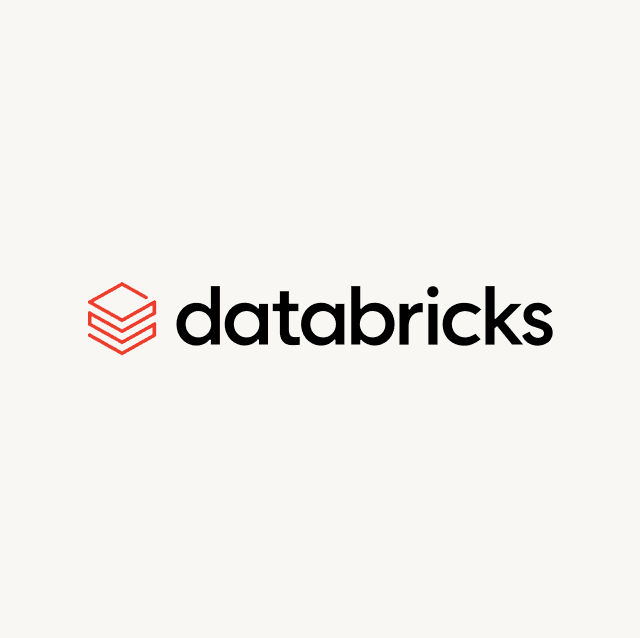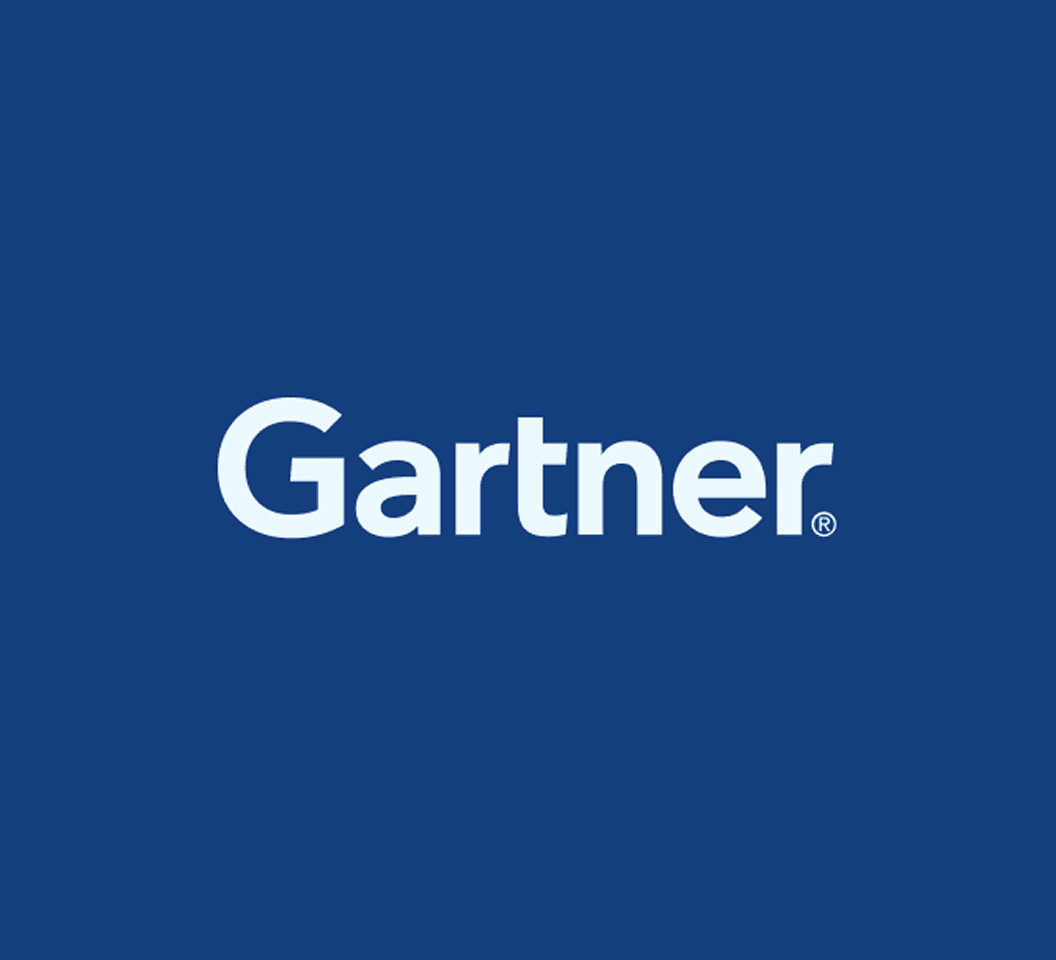We launched Match Booster in May to help companies better match their first-party customer data to user profiles in ad platforms. We’ve driven major wins for massive B2C companies, who were able to use Match Booster to enrich their audiences with trusted third-party identifiers and replace outdated (and wildly expensive) data onboarding options like LiveRamp.
Today, we’re thrilled to announce that we’ve solved this challenge for B2B companies too. We’re launching Match Booster B2B, a significant upgrade to our Match Booster functionality. We’ve built relationships with leading B2B data providers to assemble identity graphs that link business and personal contact information. We enrich business contact information with personal identifiers as data syncs to ad platforms, dramatically boosting match rates.
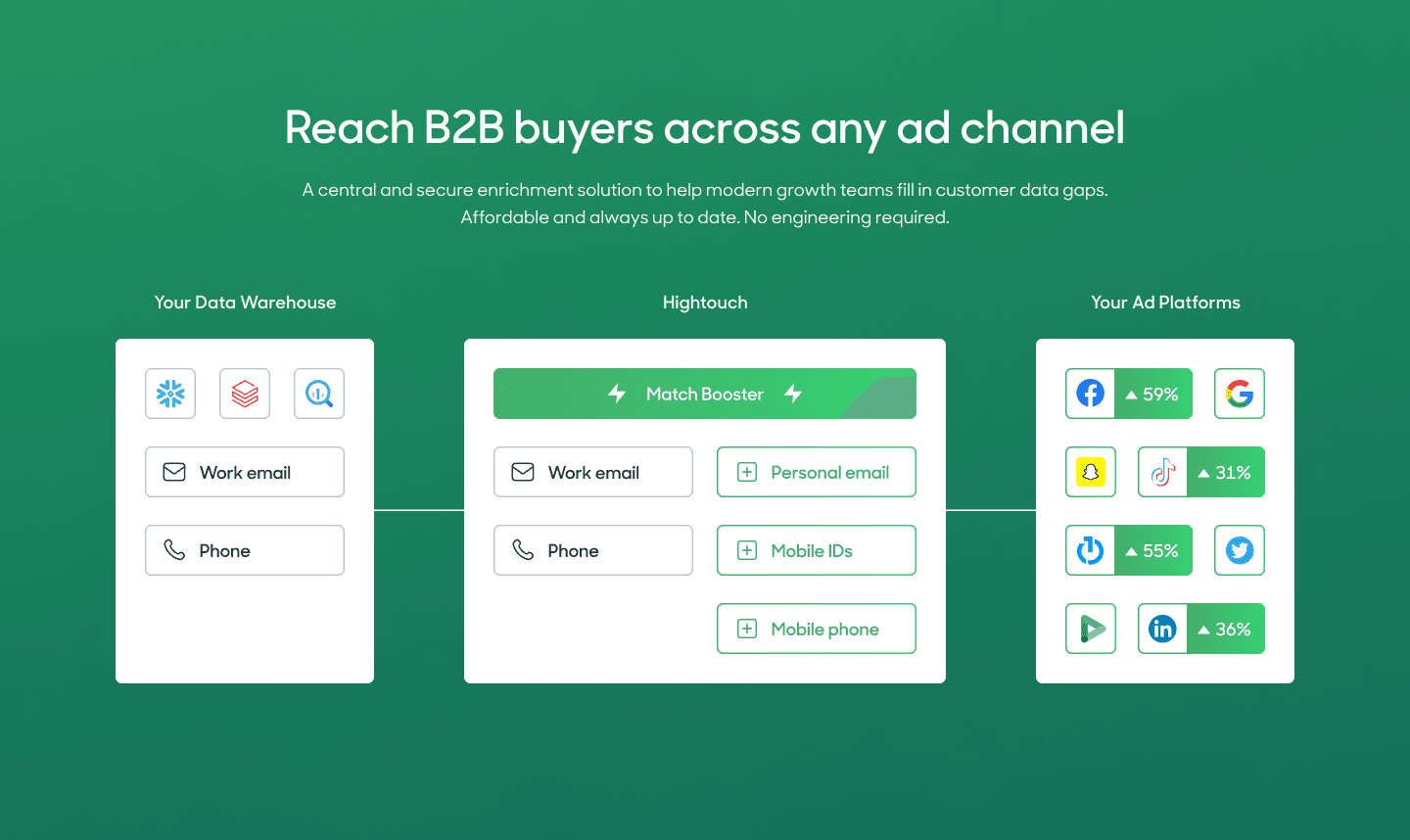
The impacts can be dramatic: for example, we used this ourselves at Hightouch to finally match to our own first-party audiences on ad platforms. We now reach our audiences at 25% lower CPCs than what we’d spend on our typical generic audiences. Now, B2B companies can effectively utilize their data to target their desired prospects and customers across all major advertising and social platforms.
Why B2B companies need to boost match rates
B2B advertising is more effective with first-party data
Without first-party targeting, marketing teams can only reach broad sets of users on ad platforms, which can be expensive and ineffective. Sales teams already have specific prospects in mind– so by better leveraging this first-party data, marketing spend can align with sales efforts.
First-party data unlocks several key advertising use cases for B2B companies:
- Account-Based Marketing: Your sales team already has lists of target accounts in Salesforce. Marketing teams can serve ads to all contacts for each target account.
- Nurture Campaigns: Large enterprises aren’t always ready to buy immediately, so you must build trust over time. Serving your best new content and product launches to your prospects across an organization throughout the year keeps you top of mind.
- Upsell Campaigns: Many B2B companies’ biggest deals come from upsells. You can serve ads to existing customers to drive product awareness during renewal conversations.
- Visitor Retargeting: Use IP and device-based targeting to reach new potential leads after they visit your website.
- Reach New Lookalike Audiences: You can identify new top-of-funnel deals by creating an audience with all of your past Deal Champions and then targeting lookalikes on ad platforms.
- Suppression Lists: You shouldn’t waste ad spend on people who already have your product and aren’t a candidate for upsells. Removing them from your campaigns is an easy win to increase efficiency.
- Conversion APIs: Walled gardens like Facebook and Google offer Conversion APIs that you can use to inform them when customers complete key interactions like submitting a lead form. This allows you to leverage their machine learning-driven optimization capabilities to improve ad effectiveness and better understand campaign performance.
These tactics can dramatically improve B2B advertising effectiveness. So why isn’t everyone doing them?
Low match rates interfere with first-party B2B advertising
When you try to upload first-party data to ad platforms, you’ll often find that most of your data doesn’t match to the customers in each platform. You may upload thousands of customers into an ad platform and find you can only target a handful.
This problem is particularly acute for B2B companies because they typically collect business identifiers from customers and prospects rather than personal identifiers. For example, people create accounts on platforms like TikTok with personal phone numbers and email addresses. So, you won’t successfully match your customer list to use that platform if you only have business email addresses. More often than not, B2Bs have only been able to leverage their first-party data on (relatively expensive) platforms like LinkedIn that also rely on business contact information.
If you can’t match your first-party data to ad platforms, you’ll miss out on the many valuable campaigns it can enable, like account-based marketing, nurture campaigns, lookalike audiences, and more. You also won’t be able to take advantage of Conversion APIs to use your online and offline conversions to optimize spend. You’ll likely pay more because you have to target more users to reach your target customers and face elevated CPCs on the audiences you can upload because they’re too small to optimize.
Introducing Match Booster B2B
Match Booster B2B solves this challenge. Hightouch has built a robust graph of customer identifiers spanning business and personal accounts. When you sync business emails to ad platforms through Match Booster, we enrich each customer profile with personal identifiers like phone numbers and personal emails, allowing you to successfully find and target that customer in your downstream ad platforms.
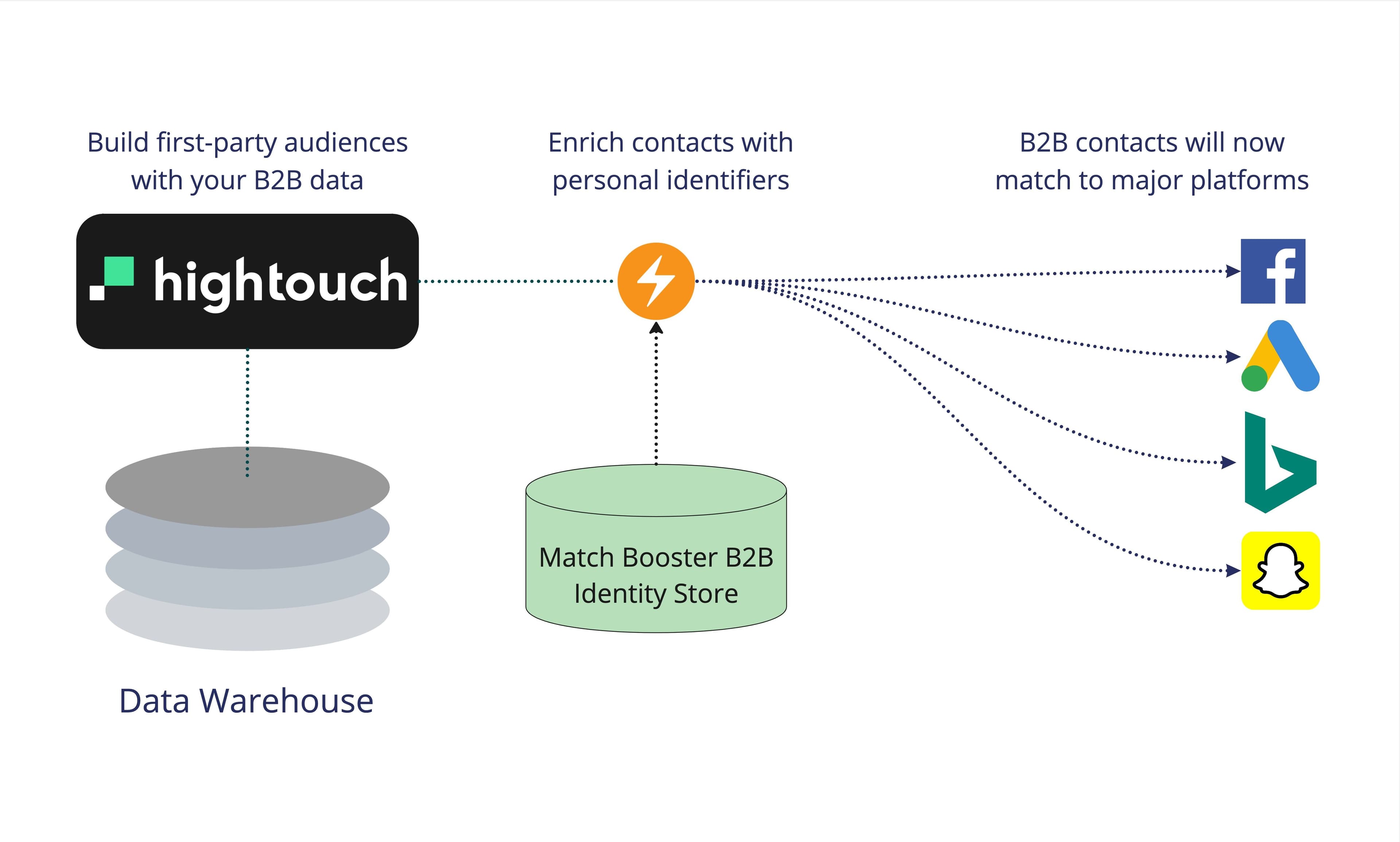
We’ve used Match Booster B2B ourselves and seen dramatically improved match rates across many platforms, making their first-party audience tooling viable for us for the first time:
- Google: we improved our match rate from 1.4% to 25.1%
- Facebook: we improved our match rate from 2.4% to 24.9%
These newly unlocked first-party audiences are performing really well for us and, on average, have 25% lower CPCs than our third-party-sourced audiences.
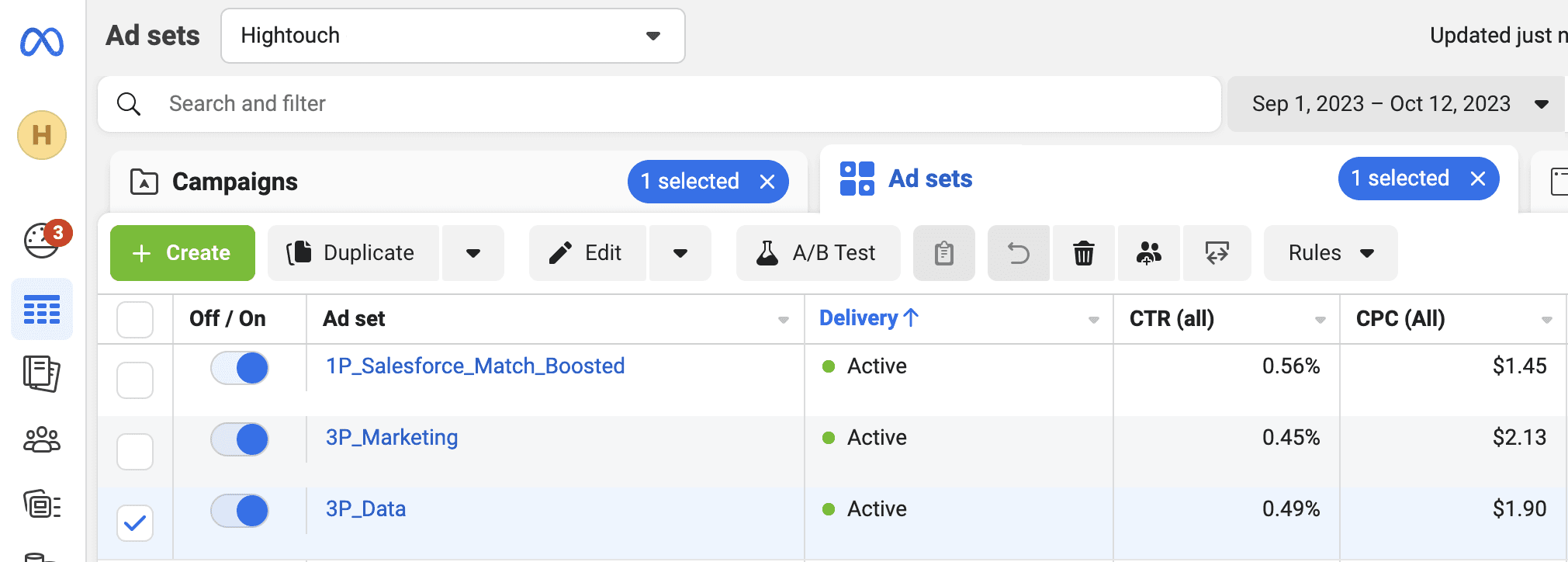
Our first-party audience enriched by Match Booster (“1P_Salesforce_Match_Boosted”) has notably lower CPCs than our third-party audiences.
“Our team hasn't ever been able to create first-party audiences large enough to use in Facebook and Google due to their poor match rates for B2B. After turning on Match Booster, we can finally leverage our customer lists to create valuable first-party audiences.”

Alex Roed
Head of Growth at Hightouch
Getting Started
B2Bs: you can finally leverage your first-party data to improve your advertising effectiveness and unlock brand-new channels. Contact us to set up a proof-of-concept at no cost to see what you can accomplish with Match Booster B2B.




